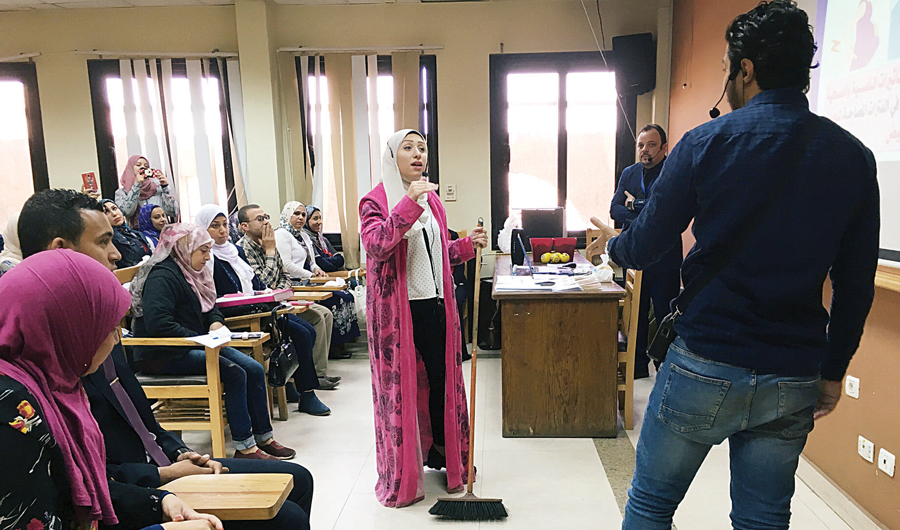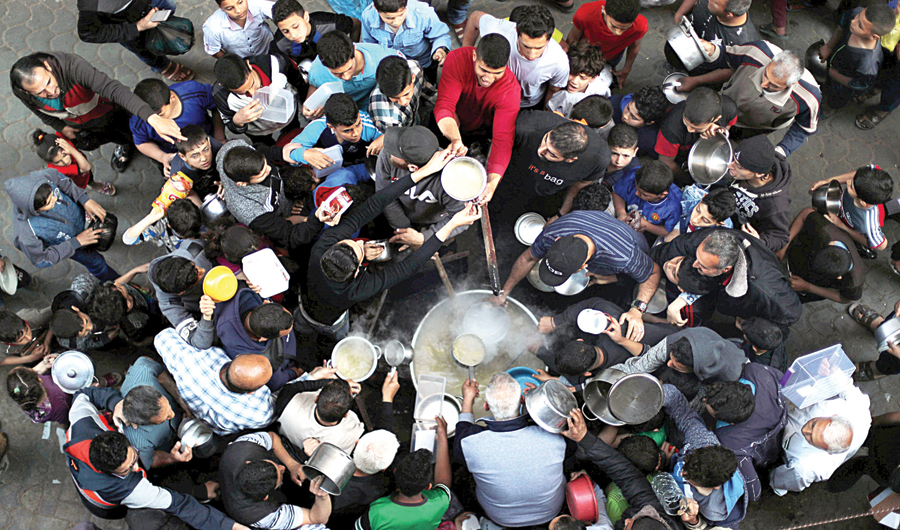Sudan talks resume after shootings mar breakthrough
KHARTOUM: Protest leaders resumed talks with Sudan’s military rulers Tuesday seeking to build on a political breakthrough overshadowed by deadly shootings.
The protest movement is demanding a civilian-led transition following 30 years of rule by President Omar Al-Bashir, but the generals who toppled him have been holding onto a leadership role.
An army major and five protesters were killed by unidentified gunmen at a long-running sit-in outside military headquarters in Khartoum late on Monday, just hours after the two sides announced they had reached agreement on the structure and powers of bodies that will oversee a transition.
The Alliance for Freedom and Change — the protest movement umbrella group negotiating with the ruling military council — said the shootings were an attempt to “disturb the breakthrough.”
The military council said it had “noticed some armed infiltrators among the protesters” at the sit-in, but did not identify them.
Protest leaders changed their stand on Tuesday. “It’s their (military) direct responsibility to guard and protect the citizens,” Mohamed Naji Al-Assam, a prominent figure in the movement, told reporters.
On the political track, protest leaders remained locked in talks with council representatives expected to focus on the composition of transitional bodies to run the country. The protest movement has demanded they have civilian majorities.
The military is ready to accept a mainly civilian Cabinet but has been demanding a military majority in a proposed sovereign council that will have the final say on matters of state.
Also on the agenda was the duration of the transition, with the military calling for a two-year timeframe, while the protesters want four years to allow time for preparatory reforms.
The latest round of talks which opened on Monday come after a break in negotiations that saw protest leaders threaten “escalatory measures” to secure their central demand of civilian rule. The issue has kept protesters camped outside army headquarters around the clock ever since Bashir’s overthrow.
The sit-in has become the focal point for the protest movement, overtaking the near-daily protests that had been held across Sudan while the veteran president remained in power.
But on Tuesday, following the previous night’s violence at the Khartoum sit-in, protesters held demonstrations in the Abbassiya and Al-Arbaa regions.
In Al-Arbaa, some demonstrators blocked roads with burning tires, a witness said, adding that troops deployed to the area.
Doctors, who along with other professionals have played a major part in organizing the protests, have set up field clinics at the sit-in where they treated the wounded from Monday’s shootings.
“So far all cases are stable, and those unstable have been transferred to hospital,” a duty doctor told AFP.

‘Infiltrators’ suspected behind shooting dead of 5 protesters, army officer in Sudan Brother of Sudan’s Bashir not in detention: army


 Since March 2017, the PA has deducted more than 60 percent of the salaries of about 50,000 of its employees in Gaza. The PA says the measure is due to a financial crisis, but Palestinian factions and employees see it as “sanctions” to pressure Hamas “and to destabilize the Gaza Strip since it took control of the Gaza Strip in mid-June 2007.”
Since March 2017, the PA has deducted more than 60 percent of the salaries of about 50,000 of its employees in Gaza. The PA says the measure is due to a financial crisis, but Palestinian factions and employees see it as “sanctions” to pressure Hamas “and to destabilize the Gaza Strip since it took control of the Gaza Strip in mid-June 2007.”
